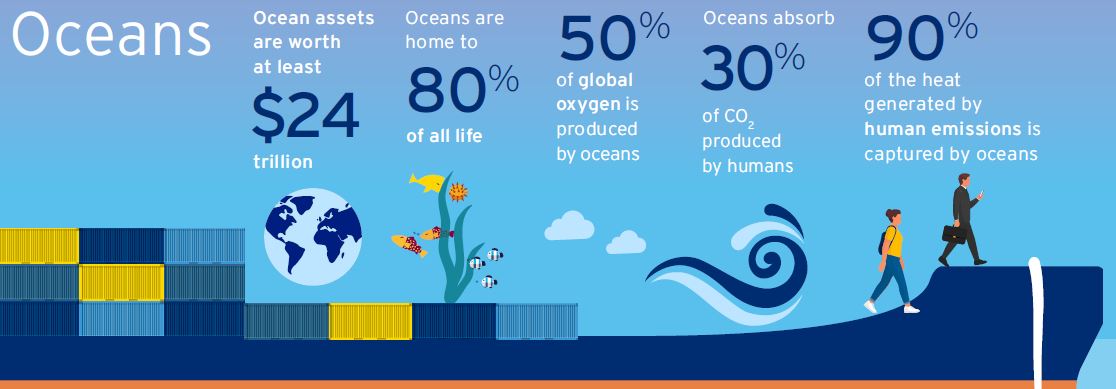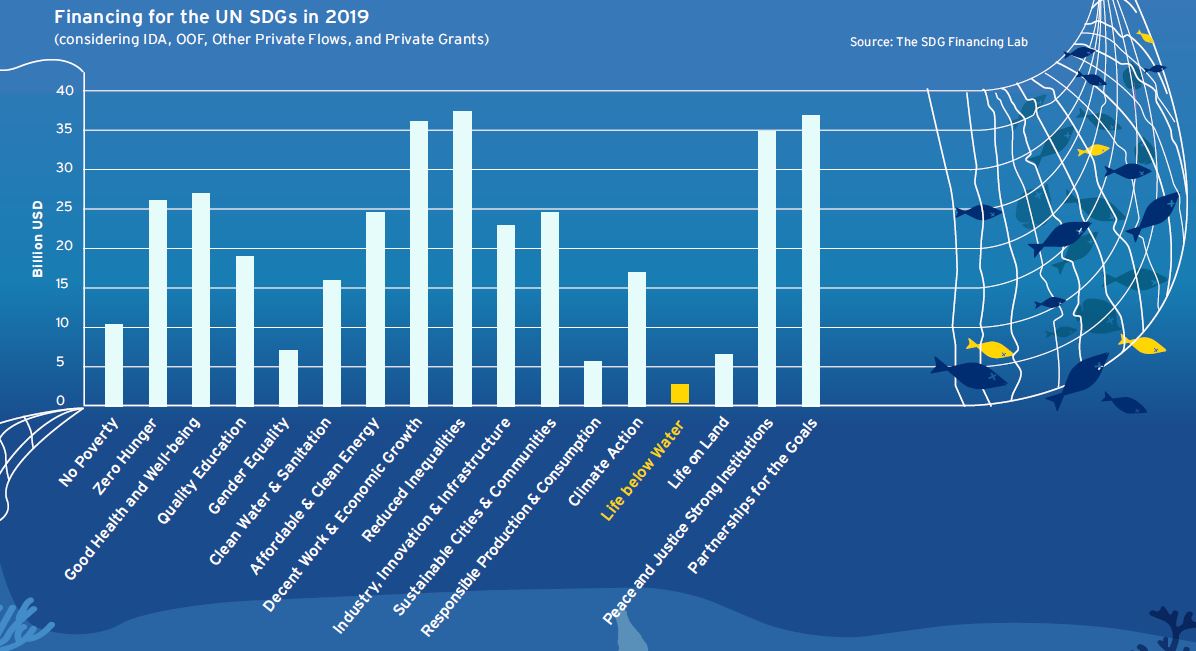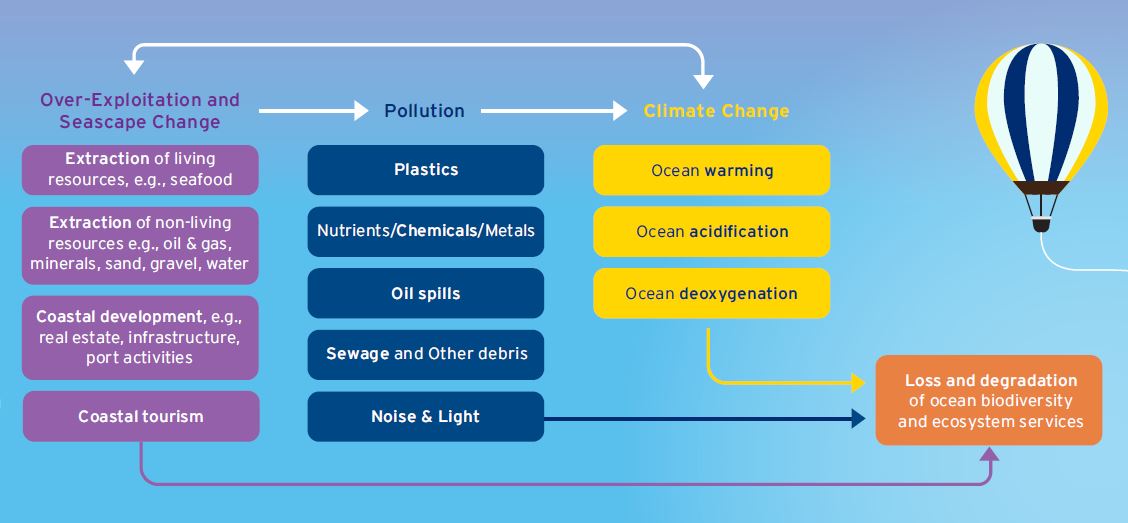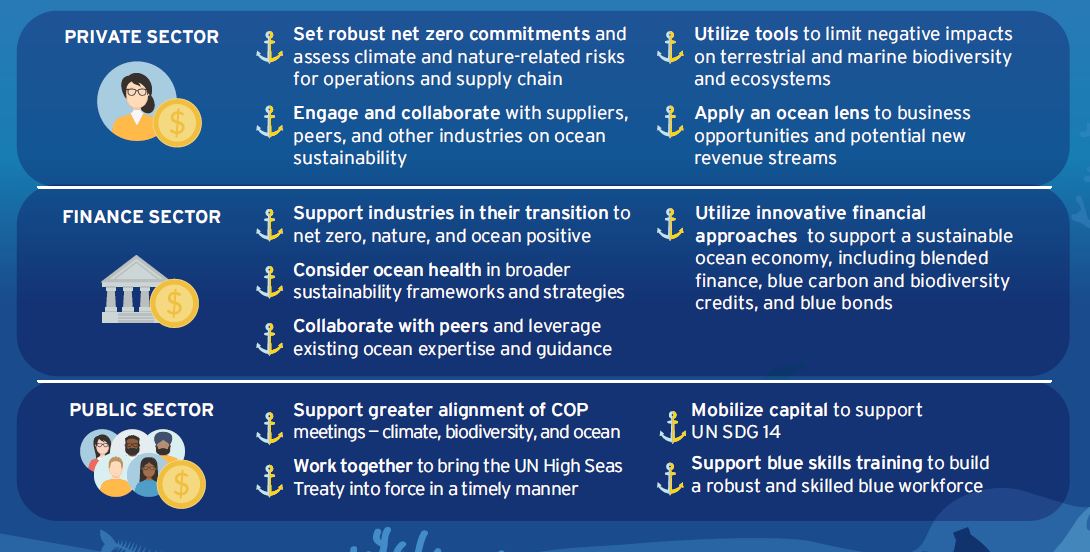Sustainable Ocean Economy

While we all intuitively recognize that oceans are important, the fact is we grossly underestimate how utterly critical they are to our survival as a species. Oceans, the world’s largest ecosystem, cover over 70% of the Earth’s surface, are home to 80% of all life, and produce 50% of the oxygen we breathe. While society devotes increasing time and energy to terrestrial drivers and impacts of climate change, more often than not we fail to recognize the critical part oceans play in this dynamic — absorbing 30% of the CO2 produced by humans and capturing 90% of the heat generated from those emissions.
Given their extraordinary importance and our dependence on oceans, why the utter disdain? The simple fact is that around two-thirds (61%) of the oceans are outside national jurisdictions, meaning responsibility and oversight becomes an issue, and their sheer scale and depth enables an “out of sight, out of mind” attitude to prevail for many, leaving the ocean underfunded, unrecognized, and undervalued. Despite having their own UN Sustainable Development Goal (SDG 14), oceans received the least funding, and is the least-cited of all of the SDGs, with a funding gap of some $149 billion per year to the estimated required annual spend of $175 billion.
However, there are reasons for optimism, albeit tentative. Recognition of and attention to the ocean crisis is growing rapidly, including the recent Kunming-Montreal Global Biodiversity framework targeting protection for 30% of the world’s oceans by 2030, the recent International Treaty on Protection of the High Seas, potential treaties on plastic pollution, and the impending introduction of the Taskforce on Nature-related Financial Disclosure, which features oceans as one of its four realms.
New forms of finance such as debt for nature swaps and blue bonds, to name but two, offer enormous potential to harness vast pools of capital. New technologies offer the potential to understand the oceans in ways we never have before. New industries and economies offer enormous economic potential. And all of this before we consider the environmental benefits of building a sustainable ocean economy.
Given the importance of oceans to the planet, we examined why all businesses and financial institutions should care about ocean sustainability, and how we should address the mismatch between the significance of ocean sustainability and the lack of attention and investment towards the issue.To do this, we first identify the key drivers of ocean health decline, grouped into three areas: over-exploitation and seascape change, climate change, and pollution.
Importantly, we carried out a new and granular assessment of impact materiality and revenue exposure for industries. Within the universe of 48,000 public companies that were assessed, we found that $4.3 trillion dollars (11.7% of total revenue mapped) are potentially at risk based on the impact materiality mapping by ENCORE for marine ecosystem use. If we also consider indirect revenue exposure, based on impact materiality ratings for greenhouse gas (GHG) emissions and pollution stressors, $27 trillion (63% of total revenue considered) could be indirectly at risk due to potentially negative impacts on the ocean.
We also completed geospatial analysis to identify potential hotspots of marine natural capital loss and finds that 67% of national waters Key Biodiversity Areas (KBAs) and 55% of high seas KBAs may be impacted by multiple economic activities and are at risk of disruption or depletion.
Combined, we believe that the analysis helps to demonstrate why a broader view of the ocean economy is needed to address all the drivers of ocean health decline and, through the lens of double materiality, why ocean health matters for all marine-and land-based businesses. It also demonstrates the need for more integrated ocean management and governance that considers the need to balance multiple ocean users and stressors along with ocean conservation, which the current fragmented sectoral approach to ocean governance fails to accomplish.
Why Oceans Are Important

UN Sustainable Development Goal (SDG) 14: Life Below Water

The Key Stressors of Ocean Health

Opportunities for Businesses and Financial Institutions



